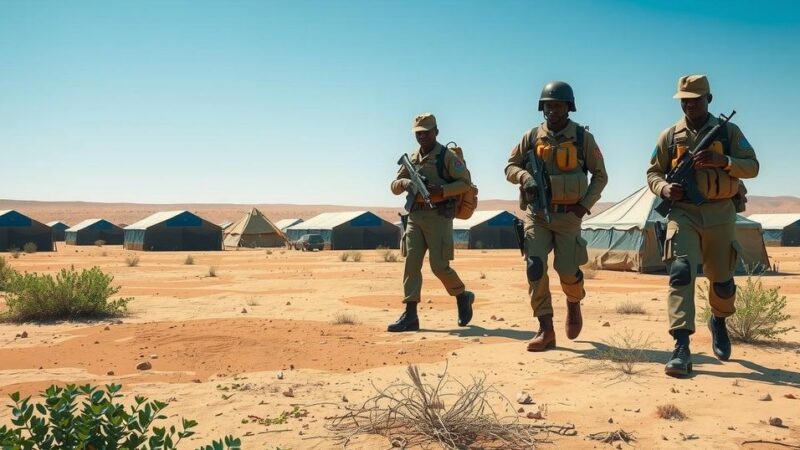This article discusses the complex relationship between South Sudan and Uganda, emphasizing historical ties, military support, and economic interdependence. It highlights the challenges South Sudan faces in sovereignty, governance, and mitigating external influences, particularly with ongoing humanitarian crises and regional rivalries. A balanced diplomatic approach is proposed to safeguard the nation’s stability and foster resilience.
South Sudan, the world’s youngest nation, currently faces significant challenges in maintaining its sovereignty amid complex relations with Uganda. These two nations share deep historical and cultural connections, yet their political interests diverge, impacting regional stability and economic growth. As South Sudan strives to solidify its independence, the influence of its neighbor looms large, necessitating astute diplomatic strategies.
During South Sudan’s fight for independence, Uganda played a crucial supportive role by providing military assistance which helped in overthrowing the Sudanese government. This collaboration with Uganda’s President Yoweri Museveni was often connected to efforts against the Lord’s Resistance Army (LRA), which, at that time, troubled Uganda. Such intertwined histories form the backdrop for the ongoing relationship between these nations.
Post-independence, South Sudan emerged as a lucrative market for Ugandan goods and labor, while Uganda supported peace initiatives through regional organizations like IGAD. However, the relationship has been tumultuous, characterized by military involvement that has entrenched existing conflicts and engendered considerable humanitarian crises arising from violence and population displacements.
The civil war that erupted in December 2013 strained bilateral relations significantly, with Uganda’s military aiding President Kiir against the opposition. This intervention not only deepened internal conflicts in South Sudan but also caused extensive humanitarian consequences, including infrastructure destruction and vast refugee movements.
Although a peace agreement was signed in 2018, South Sudan remains in a precarious state, grappling with governance issues amidst ongoing humanitarian needs. Complications arising from Uganda’s support for the Kiir regime have led to allegations of exacerbated tribal divisions and have pulled South Sudan into broader regional rivalries involving Sudanes and Ethiopian factions as they vie for power.
In economic realms, the competition between South Sudan and Uganda intensifies over trade and resource control. The bordering nations rely heavily on each other, particularly in the oil sector, where Uganda’s investments become imperative to tap into South Sudan’s resources, albeit under strained circumstances. Disputes regarding these resources could exacerbate tensions.
South Sudan’s position within the Horn of Africa enhances its diplomatic significance, drawing attention from global powers interested in regional resources. This complicates its foreign policy as it navigates relationships with neighboring countries alongside major international stakeholders like the U.S., China, and Russia.
Uganda’s interests lie in safeguarding its stability while nurturing its regional hegemony, leading to criticism from entities like Sudan. Although Uganda’s close association with Kiir’s administration aids its goals, it could also provoke tensions with neighboring nations that have historical contentions.
The international community, including organizations such as the UN and African Union, advocates for Uganda to adopt a less biased approach towards South Sudan, promoting dialogue among various factions. For South Sudan to protect its sovereignty effectively, it requires a well-defined diplomatic strategy that balances military and economic dependencies against any overarching external influence.
Strengthening relations with other regional powers, enriching diplomatic efforts, and enhancing governance are essential for South Sudan. By fostering inclusive governance and securing bilateral agreements with diverse partners, South Sudan can mitigate excessive outside interference, ultimately striving for stability and lasting peace despite its vulnerabilities amidst regional dynamics.
In conclusion, South Sudan’s relationship with Uganda is fraught with complexities stemming from historical ties, military involvement, and economic interdependence. Navigating these dynamics is crucial for safeguarding South Sudan’s sovereignty and fostering internal stability. A balanced approach that enhances partnerships with varied regional actors while addressing governance challenges will be vital for the nation’s long-term resilience and autonomy.
Original Source: www.radiotamazuj.org






